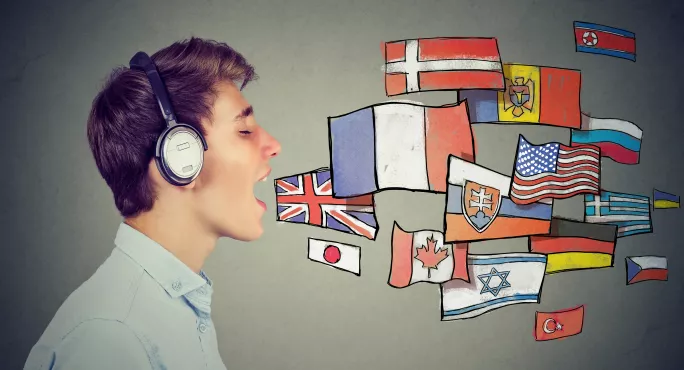"If we can just get Brexit done", some seem to think, "we won’t have to worry about learning all those other languages!" English, that great linguistic success story, will be sufficient unto itself.
It’s a terrible delusion. All it would do is make the learning harder.
It’s not as though language is a take-it-or-leave-it option in real life. Nor should it be in schools.
There was a time when we didn’t have language at all. We didn’t have much of anything back then. It was touch and go whether we would win out over our Neanderthal rivals, who by all anthropological accounts were tougher than us and better at tool-making.
Evolution of language
But for some reason we were the ones to develop syntactical language, which turned out to be the best tool of all. Why? Because we could coordinate and cooperate with others. We could discuss, theorise, speculate, and line up plans B and C in case plan A fell through.
Later, when writing came along, we could count our crops and keep records and amass evidence. We were ahead of the game because we could speak each other’s language. The choices we made – what we did with that ability to plot and plan and scheme – is another story.
Needless to say it wasn’t English. Like homo sapiens, modern English as we know it, dating from the late 17th century, is just a blip on the evolutionary calendar. A slightly larger and more luminous blip if you go back as far as Early Modern and Shakespeare.
Such ambiguous progress as we have made – hey, we put a man on the moon! – is largely down to our hard-wired language-learning ability, our readiness to meet each other half way, to transition from Latin to Celtic to Anglo-Saxon, Anglo-Norman and beyond, to respond, reflect and adapt.
Pop-Up World of Languages museum
Which is the pragmatic philosophy behind the pop-up museum of languages that in late October, a ray of light in the wintry shadow of Brexit, popped up in a shopping centre in Cambridge – the first stop on an inaugural tour of Belfast, Edinburgh, Nottingham and London (March 2020).
The Cambridge University brains behind this innovative concept seek to address anyone from 4 to 84, but on the half-term day I was there the average age was around 8. Which seems about right for the ideal target audience. We can learn a new language at any time. It’s never too late to open our minds. But no doubt the sooner the better.
The first of its kind. the Pop-Up World of Languages museum isn’t concerned with preservation, though there is a case for that. As recently as the turn of the century, according to language activists Wikitongues, "as many as half of all languages were in danger of disappearing, a canary in the coal mine of humanity". Now, they argue, we are living amid "a renaissance of linguistic and cultural diversity", breathing life into the otherwise hollow oxymoron, "global community".
Yet despite this empowering vision we are still erecting political barriers. The Pop-Up World of Languages museum invites us to transcend them. On the tried-and-tested model of the science museum, its interactive displays spark the thrill of discovery that goes hand-in-hand with learning any new language: a lost-in-translation untranslatable word quest, a pool of creatures carrying words loaned to English ("emoji", "rucksack", and "graffiti"), a "language family" street and an "I love you" language-line of pink Post-it love hearts.
Monolingual 'left behind'
For now we are still riding the wave of English. But more than 75 per cent of the world’s people do not speak English at all, even though more of them are bilingual than not. Despite the privilege of living in a richly multilingual country, the UK’s monolingual English speakers run the risk of being left behind, not least in trade, business and diplomacy.
In the pop-up museum you can listen to seven different non-native English speakers reading a passage from Alice in Wonderland. No two sound alike; in each case English is infused with a new and enchanting music. Let your language roam the world and in some cases it will change beyond recognition. But we should celebrate that. The best way of keeping any one language alive is by embracing and learning from others.
Language is the thing all humans have in common, the electricity that binds us together, as individuals, families and societies. Not any one among the world’s 7,000-plus different languages, but the basic tool itself. We know that if we just listen hard enough, open our ears and hearts and minds – and OK, maybe our phrase books too – sooner rather than later we will be playing football together or swapping anecdotes over a glass of sake or sangria.
Dr Heather Martin is an independent scholar and linguist
Find out more about the pop-up museum of languages, and where you can visit it, at meits.org. Learn more about language reclamation at wikitongues.org

